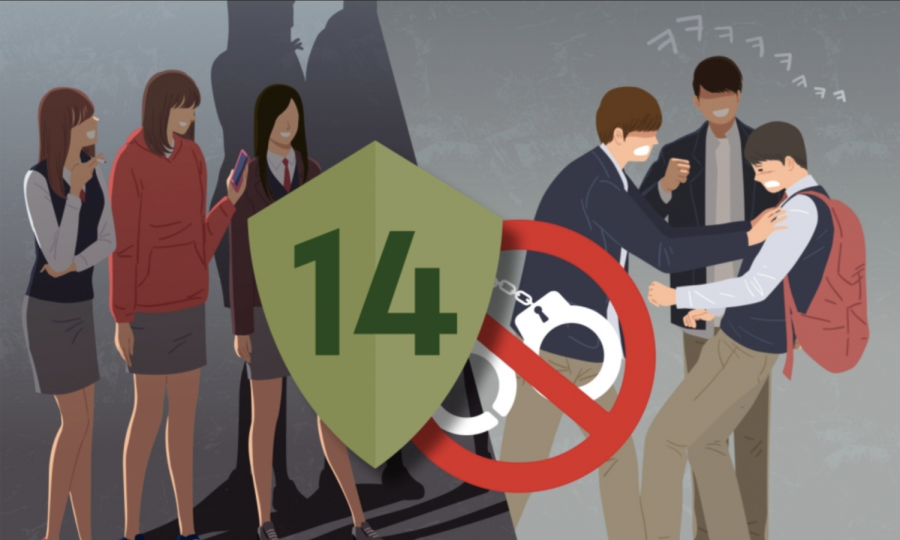Age for criminals?
Are you younger than 14?
In Korea, this seemingly arbitrary question can determine whether you spend a lifetime in jail or get off free.
This flaw in the Korean law was highlighted in May 2020, when a group of juveniles killed a man while driving a stolen car. When all but three of the perpetrators weren’t sentenced to prison, Korean citizens erupted in protests. One petition on the government’s website, posted by the victim’s girlfriend, gained nearly 870,000 signatures within a month.
Such cases where juveniles get excused from legal punishment have been increasing lately, yet there has been no response. To prevent such crimes from continuing to happen, the age of criminal responsibility must be lowered immediately.
At the moment, article four of the Korean Juvenile Act excuses children between the ages of 10 to 14 from being punished under criminal law. Instead, they are sent to reformation centers for short periods of time or placed under the care of a legal guardian.
When the Juvenile Act was first created, it made sense. During the 1950s, many juvenile offenders lived in poor social environments, and the law aimed to reform them by putting them in better situations. Considering Korea’s general poverty and underdevelopment, it was logical to emphasize reform over punishment.
However, Korean juveniles are in a completely different situation today. Korea’s development has changed the demographic of juvenile delinquents from children with poor backgrounds to wild teenagers taking advantage of the law. Many offenders can no longer be considered products of their environment.
Also, contrary to the original motive of the law, juvenile criminals have shown no sign of sorrow after committing crimes. The teenagers in the aforementioned hit-and-run case weren’t sympathetic; instead, they even mocked the police system with slurs on social media after the incident.
Hence, the Juvenile Act requires modification to catch up with Korea’s changing circumstances.
This sentiment has been echoed throughout the Korean media since the rise of such malicious juvenile crimes. For example, popular webtoons “Cham Go Yuk” or “Get Schooled,” which feature societal issues, have been steadily receiving high ratings from viewers after dealing with juvenile crime cases.
Against this issue, the government made an official statement about amending this specific law on Oct. 26, announcing a significant attempt to decrease the age presented in the Juvenile Act. The document released by the government suggests specific changes such as decreasing the age from 14 to 13 while increasing monitoring time for juveniles responsible for crimes.
As the government suggested, changing the age of juveniles is most likely the best solution. However, by the age of 13, juveniles are more than aware of the Juvenile Act and crimes. So, the age should be dropped to 12 rather than 14. This law has been created over 70 years ago and contains outdated elements that shouldn’t apply to society.
This potential change can awaken the Juveniles to be more attentive to the cold realities and establish a proper justice system for the young to follow.

